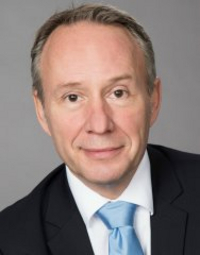University Medical Center (UMC) Mainz
Maria Felicia Basilicata Christian Behl Benedikt Berninger Luciana Berod Tobias Bopp Andreas Daiber Sven Danckwardt Carsten Deppermann Stephan Grabbe Thomas Hofmann Daniela Kramer Daniela Krause Dilja Krueger-Burg Michael Kühn Beat Lutz Johannes Mayer Wolfram Ruf Katrin Schäfer Susann Schweiger Natalia Soshnikova Tim Sparwasser Oliver Tüscher Sara Vieira-Silva Ari Waisman Philipp Wild Jennifer Winter Fatemeh Zare-ShahnehInfection immunology

Infectious diseases caused by viruses, bacteria, fungi or parasites still represent a key global health problem, aggravated by the increasing number of multi-resistent pathogens. In order to develop appropriate therapies and vaccination strategies, it is therefore of enormous importance to better understand the basic mechanisms underlying the various infectious diseases.
In our group we are investigating several key aspects of infection biology. This includes a better understanding of host-pathogen interactions and the mechanisms that activate and regulate the infection-induced immune response. In addition, we explore the genetic background and the molecular processes of infection-associated immune responses and, most importantly, we search for novel ways of modulating the immune response, which finally aims to translate the findings of this basic research into clinical applications.
Positions held
- Since 2018: W3-Professor and Director, Johannes Gutenberg University (JGU), Mainz; Med. Microbiology & Hygiene, University Medical Center (UMC), Mainz
- 2008 - 2018: W3-Professor of Infection Immunology, Director, Institute of Infection Immunology, TWINCORE, Centre for Experimental and Clinical Infection Research / Hannover Medical School (MHH)
- 2015 - 2018: Guest Professor Microbiology and Infection Immunology, Facultad de Medicina, Universidad Católica de Cordoba, Argentina
- 2010 - 2015: Head of Medical Microbiology Clinic, MVZ UroMik, Salzgitter Bad
- 2002 - 2008: Group leader and specialization in Medical Microbiology (Residency), Institute f. Medical Microbiology, Immunology & Hygiene, Technical University Munich
- 1999 - 2002: Howard Hughes Medical Institute (HHMI) Postdoctoral Fellow, Skirball Institute of Biomolecular Medicine, NY University Medical Center
- 1997 - 1999: Postdoctoral Fellow and Residency, Institute f. Med. Microbiology, Immunology & Hygiene, TU Munich
- 1996 - 1997: Internship (“AiP”) and Postdoctoral Fellow, Institute f. Med. Microbiology, Immunology & Hygiene, TU Munich
Education
- 2008: Board Approval Fellow in Clinical Microbiology and Infection Epidemiology
- Habilitation, Institute f. Med. Microbiology, Immunol.& Hygiene, TU Munich
- 1997: Approbation as a doctor of human medicine
- 1996: MD at the Institute for Medical Microbiology, Johannes Gutenberg University (JGU), Mainz
- 1994 - 1995: Studies of Human Medicine, Ludwig-Maximilian-University Munich
- 1989 - 1994: Studies of Human Medicine, Johannes Gutenberg University (JGU), Mainz
Selected publications by Tim Sparwasser
Almeida L, Dhillon-LaBrooy A, Castro CN, Adossa N, Carriche GM, Guderian M, Lippens S, Dennerlein S, Hesse C, Lambrecht BN, Berod L, Schauser L, Blazar BR, Kalesse M, Müller R, Moita LF, Sparwasser T (2021) Ribosome-Targeting Antibiotics Impair T Cell Effector Function and Ameliorate Autoimmunity by Blocking Mitochondrial Protein Synthesis. Immunity, 54(1):68-83.e6 Link
Carriche GM, Almeida L, Stüve P, Velasquez L, Dhillon-LaBrooy A, Roy U, Lindenberg M, Strowig T, Plaza-Sirvent C, Schmitz I, Lochner M, Simon AK, Sparwasser T (2021) Regulating T-cell differentiation through the polyamine spermidine. J Allergy Clin Immunol, 147(1):335-348.e11 Link
Mamareli P, Kruse F, Lu CW, Guderian M, Floess S, Rox K, Allan DSJ, Carlyle JR, Brönstrup M, Müller R, Berod L, Sparwasser T*, Lochner M* (2021) Targeting cellular fatty acid synthesis limits T helper and innate lymphoid cell function during intestinal inflammation and infection. Mucosal Immunol, 14(1):164-176 *equal contribution Link
Raud B, Roy DG, Divakaruni AS, Tarasenko TN, Franke R, Ma EH, Samborska B, Hsieh WY, Wong AH, Stuve P, Arnold-Schrauf C, Guderian M, Lochner M, Rampertaap S, Romito K, Monsale J, Bronstrup M, Bensinger SJ, Murphy AN, McGuire PJ, Jones RG, Sparwasser T*, and Berod L* (2018) Etomoxir Actions on Regulatory and Memory T Cells Are Independent of Cpt1a-Mediated Fatty Acid Oxidation. Cell Metab, 28(3):504-515.e7 *equal contribution Link
Berod L, Friedrich C, Nandan A, Freitag J, Hagemann S, Harmrolfs K, Sandouk A, Hesse C, Castro CN, Bähre H, Tschirner SK, Gorinski N, Gohmert M, Mayer CT, Huehn J, Ponimaskin E, Abraham WR, Müller R, Lochner M, Sparwasser T (2014) De novo fatty acid synthesis controls the fate between regulatory T and T helper 17 cells. Nat Med, 20:1327-1333 Link
Pace L, Tempez A, Arnold-Schrauf C, Lemaitre F, Bousso P, Fetler L, Sparwasser T, Amigorena S (2012) Regulatory T cells increase the avidity of primary CD8+ T cell responses and promote memory. Science, 338(6106):532-6 Link